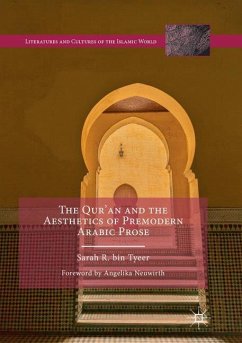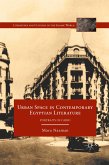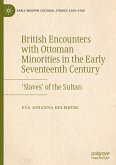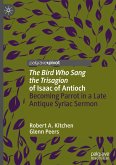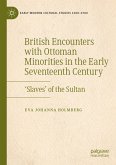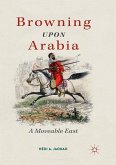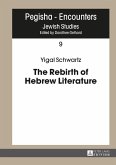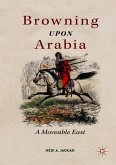This book approaches the Qur'an as a primary source for delineating the definition of ugliness, and by extension beauty, and in turn establishing meaningful tools and terms for literary criticism within the discipline of classical Arabic literature (adab). Focusing on the aesthetic dimension of the Qur'an, this methodology opens up new horizons for reading adab by reading the tradition from within the tradition and thereby examining issues of "decontextualisation" and the "untranslatable." This approach, in turn, invites Comparatists, as well as Arabists, to consider other means and perspectives for approaching adab besides the Bakhtinian carnival. Applying this critical strategy to literary works as diverse as One Thousand and One Nights and The Epistle of Forgiveness, Sarah R. bin Tyeer aims to prove two major points: how Bakhtin's aesthetics is anachronistic and therefore theoretically inappropriate when applied to certain literary works and how ultimately this literary methodology is sometimes used as a proxy for ungrounded and, sometimes, unfair arguments by other scholars.
Foreword by Angelika Neuwirth, Professor of Quranic studies, Freie University, Berlin, Germany.
Foreword by Angelika Neuwirth, Professor of Quranic studies, Freie University, Berlin, Germany.
"In this complex book the author adopts a bold approach, shows a willingness to take some risks, and undertakes a lively engagement with the material ... . The Qur'an and the Aesthetics of Premodern Arabic Prose remains a highly original work that creatively combines attention to key qur anic concepts with the interpretation of Arabic literary texts." (Devin J. Stewart, Review of Qur'anic Research, Vol. 7 (7), 2021)
"The Qur'an and the Aesthetics of Premodern Arabic Prose is a brilliant book. It enriches the field at the theoretical level and proposes original, well-informed, and highly plausible readings of premodern Arabic prose. It also illustrates the problems and dangers of decontextualized, anachronistic, and atomistic readings and offers efficient remedies to them.In so doing, the book joins other efforts to herald a new era in Arabic literary criticism which promises deeper appreciation of the tradition's intellectual legacy." (Sarra Tlili, Journal of Arabic Literature, Vol. 50, 2019)
"Bin Tyeer shows persuasively that 'Islam' has often been reduced to a caricature of puritanism, and that such a view has prevented people from considering the cultural bounty of the Middle East as owing to Islam, not being in spite of it. ... Islam, contrary to its stereotyped depictions in mainstream Western media, does have a rich tradition of creativity, humor, and complicatedness. Recognizing this reality should, says Bin Tyeer, be the starting point for a more generous view of the Islamic cultural tradition." (Kevin Blankinship, Marginalia Review of Books, July, 2018)
"The Qur'an and the Aesthetics of Premodern Arabic Prose is a brilliant book. It enriches the field at the theoretical level and proposes original, well-informed, and highly plausible readings of premodern Arabic prose. It also illustrates the problems and dangers of decontextualized, anachronistic, and atomistic readings and offers efficient remedies to them.In so doing, the book joins other efforts to herald a new era in Arabic literary criticism which promises deeper appreciation of the tradition's intellectual legacy." (Sarra Tlili, Journal of Arabic Literature, Vol. 50, 2019)
"Bin Tyeer shows persuasively that 'Islam' has often been reduced to a caricature of puritanism, and that such a view has prevented people from considering the cultural bounty of the Middle East as owing to Islam, not being in spite of it. ... Islam, contrary to its stereotyped depictions in mainstream Western media, does have a rich tradition of creativity, humor, and complicatedness. Recognizing this reality should, says Bin Tyeer, be the starting point for a more generous view of the Islamic cultural tradition." (Kevin Blankinship, Marginalia Review of Books, July, 2018)

